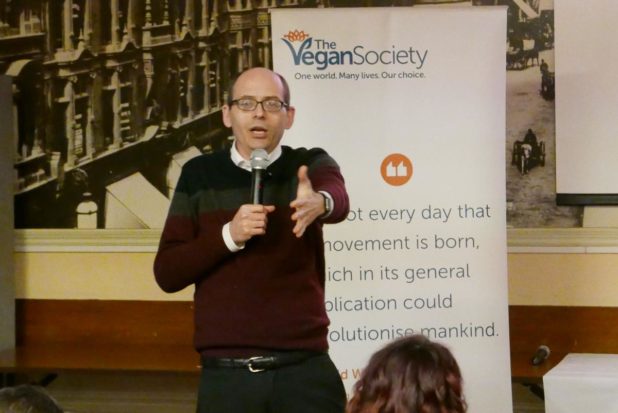Imagine a future where all adult women look like prepubescent kids.
Thanks to the lockdown and the coronavirus hysteria, soon there’ll be no meat to buy.
The lack of meat could worsen the negative effects that the lockdown and social isolation have on people’s mental health.
A vegetarian or vegan diet may be increasing the likelihood of depression, a US-based study has found.
People with a plant-based diet were twice as likely to take prescription drugs for mental illness and nearly three times as likely to contemplate suicide.
The report, which looked at more than 160,000 people, also found that a shocking one in three vegetarians suffer from depression or anxiety.
Researchers reviewed 18 studies examining the relationship between mental health and eating meat, involving a total of 160,257 participants.
They concluded that vegetarians and vegans had ‘significantly’ higher rates or risk of depression, anxiety and self harm.
The researchers suggest that avoiding meat may be a ‘behavioural marker’ indicating people already with poor mental health.
This is a suggestion that requires more research to back it up, the researchers say.
University of Alabama researchers write in the study: ‘Those who avoided meat consumption had significantly higher rates or risk of depression, anxiety, and/or self-harm behaviours.
‘Our study does not support avoiding meat consumption for overall psychological health benefits.’
Dr Edward Archer, from the University of Alabama and one of the study’s authors, said: ‘While the risks and benefits of vegan and vegetarian diets have been debated for centuries, our results show that meat eaters have better psychological health.
‘These findings have implications when defining what constitutes a ‘healthy diet’. Mental health may need to be emphasised when evaluating the benefits and risks of particular dietary patterns.’
That is certainly a good point.
Next time someone says that eating meat isn’t healthy, ask them how come people who don’t eat meat are twice as likely to take prescription drugs for mental illness and three times more likely to contemplate suicide, and how come they have significantly higher rates of depression, anxiety and self-harm if meat is so bad.
As the researchers suggest, avoiding meat could be something that people with poor mental health are more likely to do and not something that caused their mental health issues in the first place — meaning that vegetarianism and veganism attract the mentally ill.
There seems to be some truth to that claim.
Most prominent vegans are visibly deteriorated beyond what’s normal for their age, yet they keep avoiding nourishing foods that they crave in what appears to be an attempt to galvanize and camouflage their self-harm and self-hate as virtue.
They’ll say that they’re doing it for the animals and for the planet.
The most audacious ones are even saying that they do it for health while looking like walking corpses.
But on the other hand, avoiding meat and animal foods also deprives the body of nutrients that plants just don’t have or can’t offer in a form that the human body can utilize.
Diet is one factor that may contribute to depression, so plant-based diets are most likely functioning as some kind of negative feedback loop where people with poor mental health deprive themselves of the foods that would improve their mental health and further deteriorate their mental health in the process.
So which came first: the soybean or the soy pod?
We may never know.



